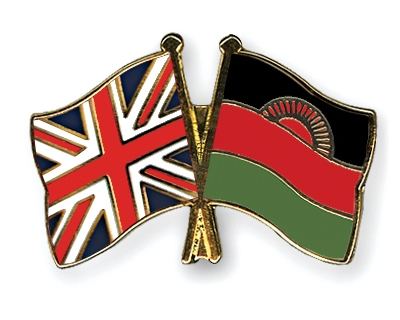Britain’s House of Commons International Development Committee has put in the spotlight some of Malawi President Joyce Banda’s decisions, including the firing and hiring of senior government officials.
Banda, who ascended to the presidency on April 7 2012 in line with constitutional order after president Bingu wa Mutharika’s death, terminated contracts for Inspector General of Police Peter Mukhito, Reserve Bank of Malawi (RBM) Governor Dr. Perks Ligoya, Secretary to the Treasury Joseph Mwanamvekha and Malawi Revenue Authority (MRA) Commissioner General Lloyd Muhara. Recently, there has also been an executive push to remove Clerk of Parliament Matilda Katopola and director of the Anti-Corruption Bureau (ACB) Alex Nampota.
In its report titled Development Situation in Malawi, the committee, which was chaired by Sir Malcolm Bruce MP (Liberal Democrat, Gordon), welcomed the developments in so far as they demonstrate President Banda’s commitment to reform.
But the committee said it was nevertheless concerned that some recent developments—since President Banda’s ascent to the presidency—have been unconstitutional.
Reads the report released on Tuesday last week: “Section 65 of the Malawi Constitution states that MPs must resign their seats if they change parties, but this does not appear to have been enforced in respect of those joining President Banda’s PP [People’s Party]. We do accept, however, that rigid enforcement of Section 65 could have been destabilising in the circumstances and undermined effective government.
“Furthermore, we have received written evidence which claims that President Banda may have strayed beyond her limit by firing certain senior officials.”
Banda on July 16 2012 said it is the domain of the Speaker of Parliament to declare vacant, seats of MPs who have crossed the floor, but indicated that her government would fund by-elections.
This statement came after Banda’s earlier remarks that put her under a barrage of criticisms when she said government may not be ready to find about K4 billion to fund by-elections if the Speaker declared vacant seats of 41 legislators accused to have crossed the floor.
Meanwhile, the MPs have urged their government to rethink how it gives aid to Malawi after the change of leadership earlier this year.
In 2011, the United Kingdom (UK) suspended direct budget funding amid concerns about mismanagement and human rights violations. The aid was provided through other channels, including non-governmental organisations.
The MPs said there had been “dramatic changes” for the better since Banda came to power.
Since Mutharika’s death in April, relations between Malawi and the UK have improved with two high- ranking British government officials visiting the country.
President Banda also introduced a floating exchange rate regime and lifted controls on currency trading, moves also seen as designed to appease foreign donors.
The Commons international development committee has said the UK should revert to providing direct support as soon as possible if economic and political changes are sustained.
In response to a questionnaire to comment on the suspended aid modality, UK Department for International Development (DfID) programme manager Andrew Massa said the position of DfID is that the nature of future British support for Malawi—including budget support—depends on the current political and economic progress being maintained.
He said Britain’s Secretary for International Development Andrew Mitchell, who visited Malawi in May this year, will take a decision on the resumption of general budget support when he is satisfied that the conditions are right.
Minister of Information and Civic Education Moses Kunkuyu said last evening government has taken note of the observations by British MPs. He said the Joyce Banda administration will uphold the Constitution as the supreme law of the land.




